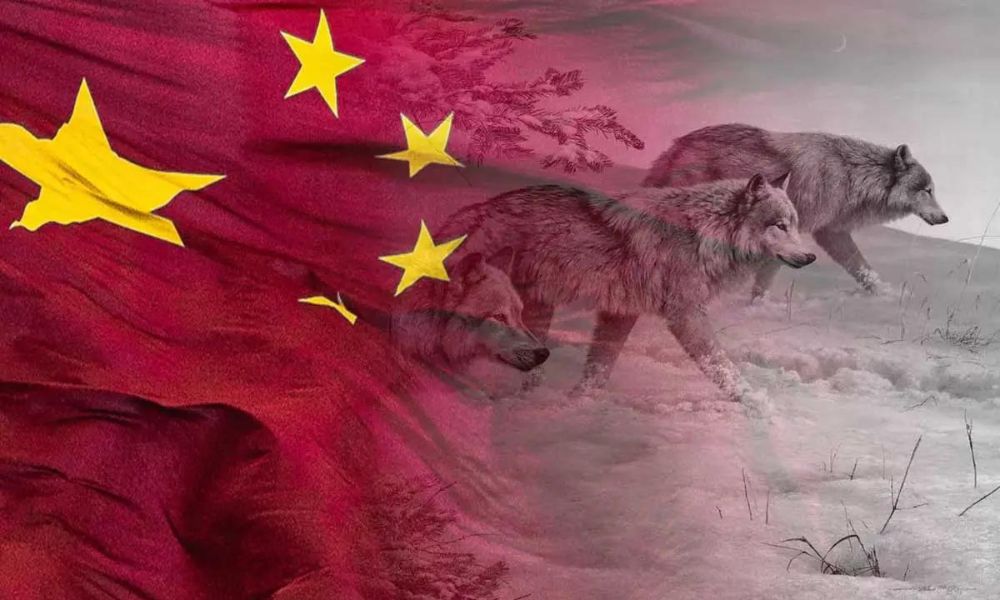
- EconomyPortals
- 18 Sep, 2023
In recent years, China has adopted a more assertive and confrontational approach to diplomacy, often referred to as "Wolf Warrior" diplomacy.
Named after a popular Chinese action movie series, this approach is characterized by a more aggressive tone in international discourse, a willingness to engage in public spats, and a departure from the traditional Chinese policy of "keeping a low profile" in global affairs.
In this blog post, we will delve into the concept of 'Wolf Warrior' diplomacy, examine its impact on China's international relations, and consider the implications for the broader world stage.
Understanding 'Wolf Warrior' Diplomacy
'Wolf Warrior' diplomacy represents a significant shift in China's approach to international relations. It is marked by the following key characteristics:
- Aggressive Rhetoric: Chinese diplomats, both official and unofficial, have adopted a more confrontational and assertive rhetoric in their public statements. This includes sharp criticisms of other nations, especially those that question or criticize China's policies.
- Nationalistic Tone: 'Wolf Warrior' diplomacy often carries a strong nationalist tone, appealing to a domestic audience and portraying China as a global power that will not be bullied by other nations.
- Use of Social Media: Chinese diplomats are active on social media platforms, using them to communicate directly with global audiences and to counter what they perceive as biased narratives in Western media.
- Economic Coercion: China has sometimes used its economic leverage to punish countries that take actions it disapproves of, such as trade restrictions or bans on imports.
Impact on China's International Relations
The 'Wolf Warrior' diplomacy approach has had several notable impacts on China's international relations:
- Increased Tensions: This aggressive diplomacy has contributed to increased tensions with multiple countries, including the United States, Australia, India, and many European nations. Public spats and disputes have become more common.
- Economic Consequences: China's willingness to use economic leverage for diplomatic purposes has raised concerns among its trading partners. Some countries have sought to diversify their trade relationships to reduce dependence on China.
- Nationalism and Unity: 'Wolf Warrior' diplomacy has garnered support among some segments of the Chinese population who view it as a source of national pride. It has also contributed to a sense of unity within the country.
- Isolation Concerns: There is a growing concern that China's assertiveness could lead to its isolation on the global stage, as it risks alienating potential allies and partners.

Implications for the Global Stage
The impact of 'Wolf Warrior' diplomacy extends beyond China's immediate bilateral relations. It has broader implications for global politics and diplomacy:
- Geopolitical Competition: China's assertiveness has exacerbated geopolitical competition, particularly with the United States. This competition affects various issues, including trade, technology, and regional conflicts.
- Challenges to Multilateralism: China's confrontational stance challenges the norms of multilateral diplomacy and institutions like the United Nations. It has sometimes obstructed international cooperation on global challenges such as climate change and pandemic response.
- Bilateral and Regional Dynamics: The effects of 'Wolf Warrior' diplomacy vary from one region to another. For example, it has strained relations in the South China Sea and contributed to territorial disputes.
- Global Perception: China's image on the global stage has been influenced by this new diplomacy. While some see it as a strong, assertive nation, others view it with suspicion and concern.
Conclusion
China's 'Wolf Warrior' diplomacy represents a notable departure from its past approach to international relations. While it has garnered support domestically and projected an image of strength, it has also strained relations with key partners and raised concerns about China's long-term global standing. The path ahead for China will require a careful balancing act between asserting its interests and maintaining constructive international relations. The world watches closely as China navigates this new era of diplomacy, with the hope that dialogue, cooperation, and diplomacy will ultimately prevail over confrontation.
